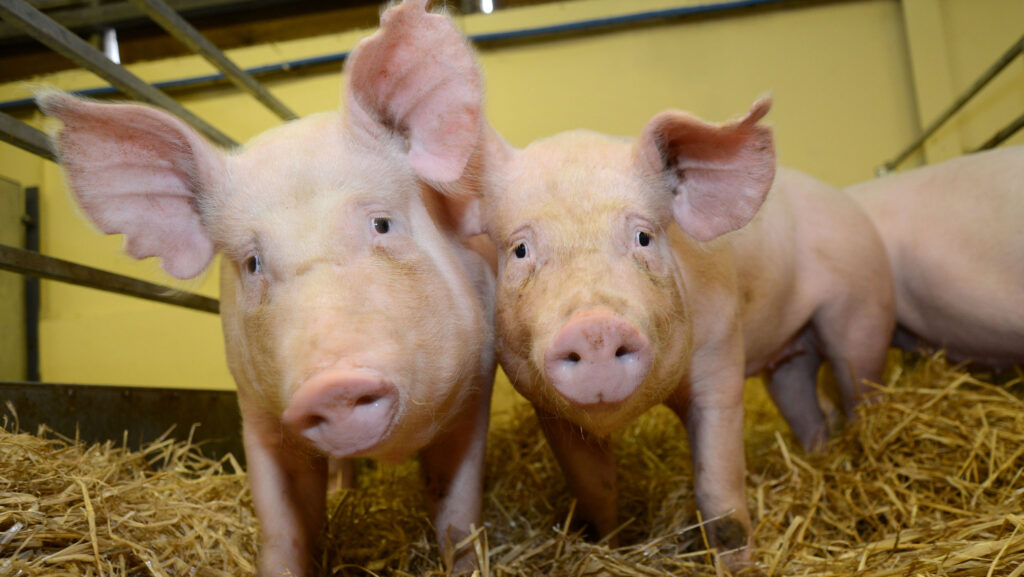Gene-edited pigs approved for US market
 © Roslin Institute
© Roslin Institute Gene-edited pigs, which have been produced to be resistant to porcine reproductive and respiratory syndrome (PRRS), have been approved for the US food supply chain.
The technology, which makes pigs resistant to one of the world’s most costly livestock diseases, was developed by the Roslin Institute at the University of Edinburgh in collaboration with animal genetics company Genus.
See also: Defra urged to push ahead with gene editing for livestock
The approval follows years of close collaboration with the US Food and Drug Administration (FDA) and is said to be a significant step on the pathway to commercialisation of gene-edited pigs in the US, and other international markets.
Jorgen Kokke, chief executive of Genus, said: “FDA approval is a fantastic achievement for Genus PIC and represents a major step towards US commercialisation.
“We will now continue to pursue regulatory approvals in other international jurisdictions with a focus on key US export markets.”
The infection, which causes fever, respiratory distress, and premature births, costs approximately $2.5 bn (£1.75bn) each year in lost revenue in the US and Europe alone.
Prof Bruce Whitelaw, of the Roslin Institute, said: “This is a milestone in the use of gene editing in livestock, and a landmark moment for the livestock industry towards managing a global disease that causes devastating losses.”
The National Pig Association (NPA) is supportive of gene-editing technology in pigs, particularly for developing PRRS-resistant breeds and welcomed the announcement.
“We believe this technology, when properly regulated and communicated, can offer significant benefits to the pig sector,” said NPA chief executive Lizzie Wilson.
“PRRS is an endemic disease which is extremely damaging and causes substantial economic losses, estimated to be as much as £30m per year in England alone,” she added.
Technology development
Researchers at the Roslin Institute focused their efforts on the CD163 gene in pigs.
This gene produces a receptor on the surface of cells, which the PRRS virus uses to cause infection.
Experts removed a small section of this gene, focusing on the section of the receptor that the virus attaches to, leaving the rest of the molecule intact.
Supported by Edinburgh Innovations, the University of Edinburgh’s commercialisation service, the team collaborated with Genus, which also licensed novel technologies from other institutions, to produce pigs with the specific DNA change.
The resulting pigs do not become infected with the virus, and the animals show no signs that the change in their DNA has had any other impact on their health or wellbeing.
UK gene-editing plans
The Genetic Technology (Precision Breeding) Act 2023 currently covers only plants, while measures for animals may be introduced after Defra has developed the details of a regulatory process for safeguarding precision-bred animal health and welfare.

